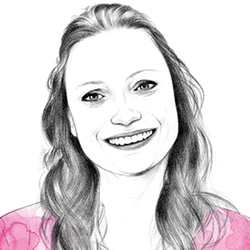Transcultural Nursing in Guatemala
Bethany Rolfe Witham ’03, MSN ’06, Assistant Professor of Nursing, School of Health Sciences
 Bethany Rolfe Witham
Bethany Rolfe Witham
“Often when groups do a medical mission trip, they go into an underserved area and see everything that’s wrong with the community,” says Bethany Rolfe Witham, assistant professor of nursing.
She aims to teach a different approach. In the study abroad program she led in Guatemala in September 2013, Rolfe Witham encouraged students, when working cross-culturally, to learn about a community’s culture, strengths, and needs before they try to solve health problems.
This means students began by studying Spanish. Next, they interviewed community leaders in Magdalena Milpas Altas, Guatemala, to ask them about local health needs and see what resources are available. Then students used their nursing skills and education to design a research project for and with community leaders, including pastors, social workers, nurses, and even the mayor.
“With the support of community leaders, the nursing students developed health education presentations on nutrition, safe water, and hygiene, which they delivered to over 200 people in the community,” Rolfe Witham reports.
She pursued this model, called “community- based participatory research,” while earning a doctoral degree in nursing. That followed her own transcultural nursing work in Costa Rica and in several community health clinics in the Seattle area, working with diverse populations. She’s learned that listening and cultural awareness can make a big difference within the short time frame health care providers have with their patients.
“Culture influences our behaviors, our decisions, and our health beliefs and values,” she says. “All people, regardless of who they are or where they come from, deserve high-quality, culturally appropriate care.”
